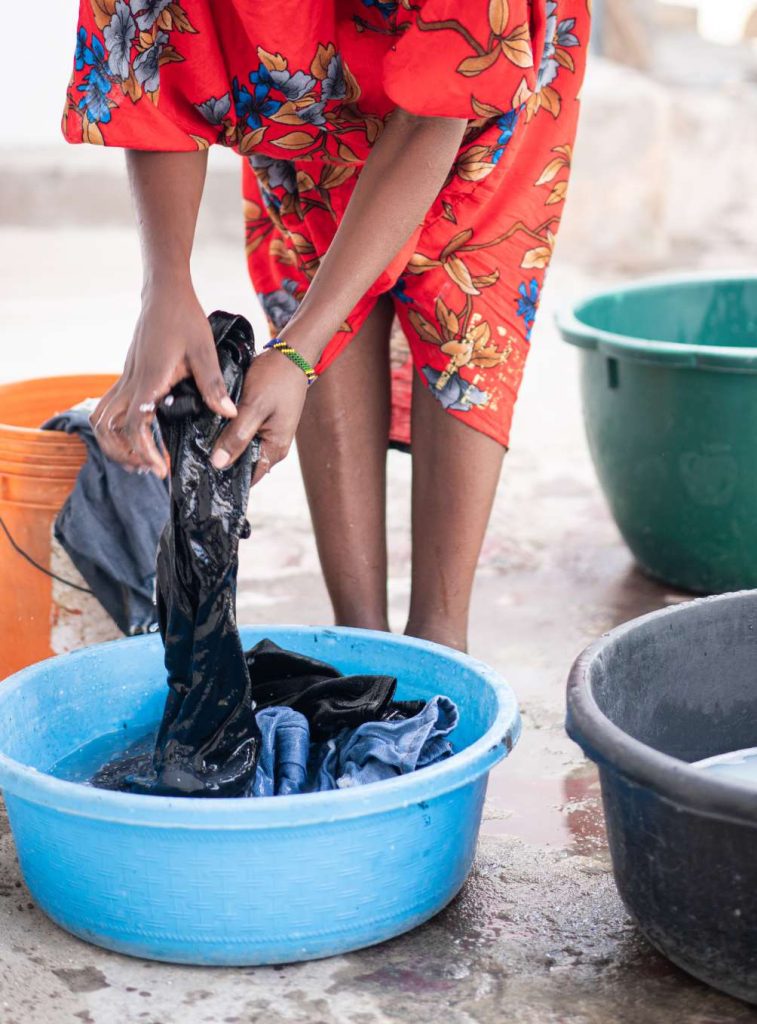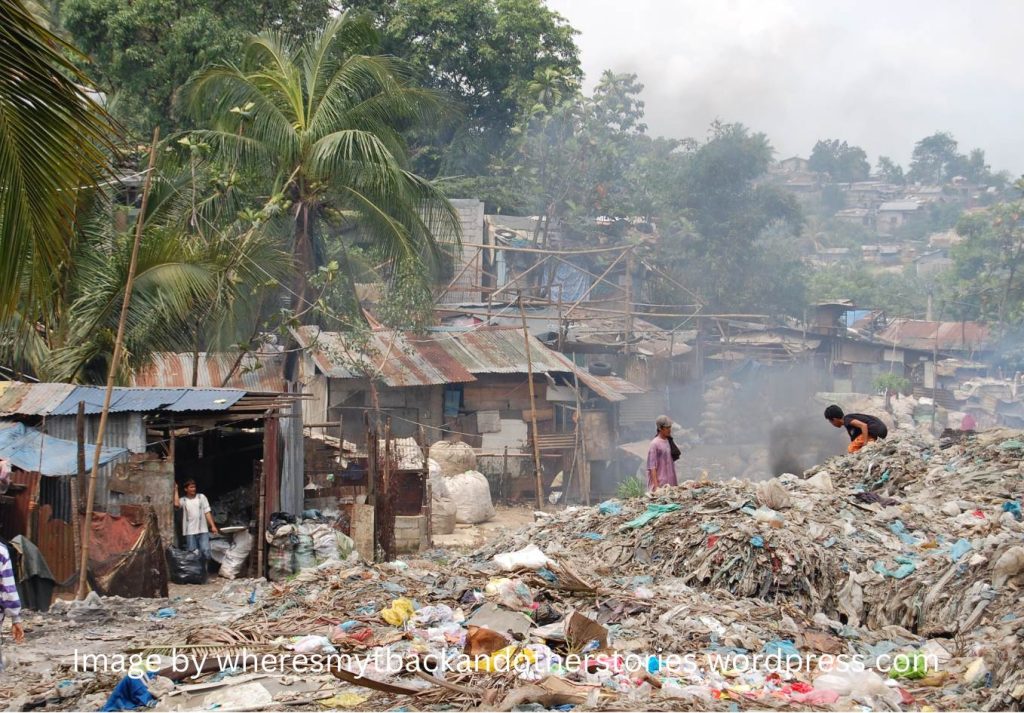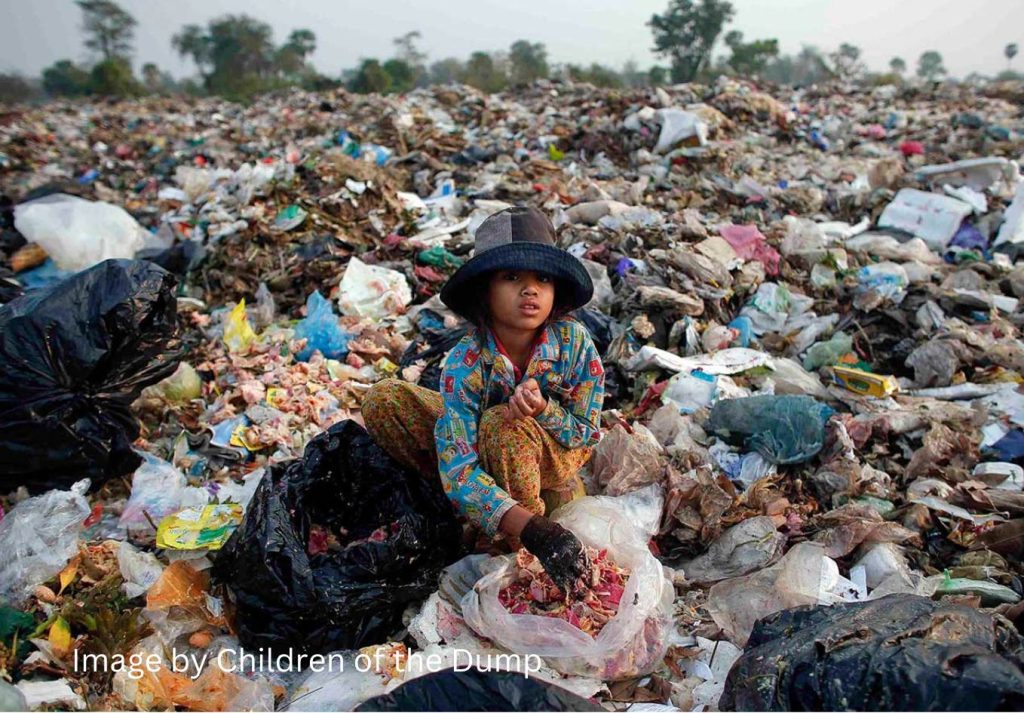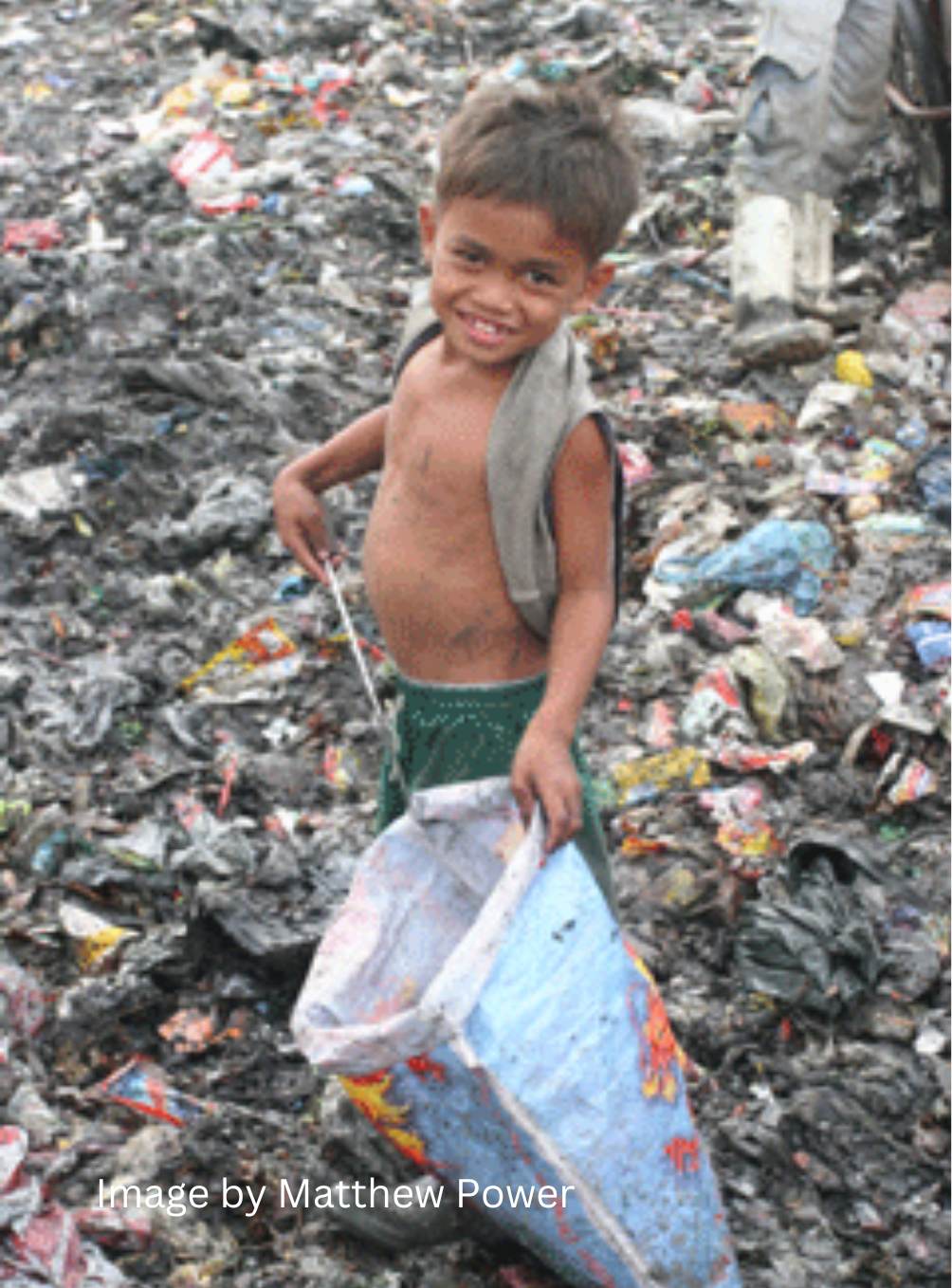Testimony by Cheryl Mah
At the age of 18 I decided to join a Poverty Immersion Programme to the Philippines. Before we even left Singapore, the others and I who had signed up spent months working hard at not only preparing ourselves mentally and spiritually, but also raising funds and donations to support and fund our trip. Before our 3-week trip, we were told we could only take a small bag of clothes, a very small amount of cash (to be kept by the leaders and dispersed to us when needed), and all our mobile devices had to be left at home. At the time, there were some terrorist activities going on in the Philippines – which worried my mother – and although she pleaded with me not to go, I remained resolute in my decision.
After a tiring journey we landed at our destination which was a little school named “Paaralang Pantao” (“People’s School” in Tagalog) located within a shanty town about 500 metres from the foot of the Payatas garbage mountain [Quezon City, Manila, Philippines]. The free school was set up by a benevolent lady who wanted to provide basic education to the children of Payatas.
 That morning, when I first got out of the car, dread overcame me and I experienced a horrifying culture shock. Besides the presence of swarms of little black flies, there was the overwhelming and nauseating stench of garbage, and garbage trucks drove past the school nonstop every 3 – 5 minutes, even throughout the night. I berated myself for the silly decision to come here, and instant regret hit me like a ton of bricks. I wondered if I could possibly survive being in the garbage city for 3 weeks.
That morning, when I first got out of the car, dread overcame me and I experienced a horrifying culture shock. Besides the presence of swarms of little black flies, there was the overwhelming and nauseating stench of garbage, and garbage trucks drove past the school nonstop every 3 – 5 minutes, even throughout the night. I berated myself for the silly decision to come here, and instant regret hit me like a ton of bricks. I wondered if I could possibly survive being in the garbage city for 3 weeks.
The first night, we went through a harsh discipline session to ‘break’ us from our entitled mindset and participated in a long prayer session to prepare us for the next three weeks. After the distressing day I had, I was not sure I could go on anymore. We slept on floor mats in the school with no air conditioning, and with all of us (7 males and only 2 females – myself and one of the leaders) squeezing into the same small space with no separation or privacy. Although we went to bed feeling exhausted, I could not sleep well due to the sounds of the passing garbage trucks, the flies and mosquitoes attacking me, and the lack of cool, clean air to breathe in.
 The next day after breakfast, we were assigned different roles in the school. Most of my programme mates were tasked to teach English to the students, while I was tasked with the worst role ever – housekeeping. I had to help do chores such as washing the dishes after every meal, cleaning the one common toilet and refilling the bucket of water which we used to take our showers, and doing the laundry. I had no choice but to hand wash the dirty laundry of 9 people, including the underwear of the 7 guys (yucks!) – and I even had to use a well to retrieve the water! Back home, I grew up having a foreign domestic helper taking care of all my needs so that I never had to lift a finger to do any household chores – yet I felt like I was being treated like a slave in Payatas.
The next day after breakfast, we were assigned different roles in the school. Most of my programme mates were tasked to teach English to the students, while I was tasked with the worst role ever – housekeeping. I had to help do chores such as washing the dishes after every meal, cleaning the one common toilet and refilling the bucket of water which we used to take our showers, and doing the laundry. I had no choice but to hand wash the dirty laundry of 9 people, including the underwear of the 7 guys (yucks!) – and I even had to use a well to retrieve the water! Back home, I grew up having a foreign domestic helper taking care of all my needs so that I never had to lift a finger to do any household chores – yet I felt like I was being treated like a slave in Payatas.
The first few days I endured the ‘slave’ treatment although I thoroughly resented it. I did not understand why I could not be involved in something more dignified like teaching the students. I felt so alone – having no one to help me, no one who understood what I was going through, and worst of all, not being able to contact my family or friends back home.
Unable to escape the incessant turmoil within my mind, I turned to God in search of solace. Pleading with Him, I questioned the purpose of my suffering. Initially, when I enrolled in the poverty immersion programme, I mistakenly envisioned mere observation and not personal destitution. On one particular day, overwhelmed by my circumstances, I sought refuge in solitude, and my tears flowed freely. Yet, it was in that moment of vulnerability that I felt the embrace of God’s comfort, assuring me of His constant presence. I was never alone, and God was with me throughout all the mundane tasks I had to do.
My spirit lifted, experiencing sudden hope and joy. After that, I returned to my tasks with much fervour, pushing myself to do better. Surprisingly I started enjoying my chores. I even got used to the wafting smell of garbage and to the noise of the constant garbage trucks coming and going.

One day, we were split up to go to stay with various households. I was assigned to the home of Mr Roberto, or “Kuya Bebot” as he asked me to call him. Kuya Bebot had a wife and two children around my age, and their family ran a pig farm in the back of the house and an eating place in the front. I was tasked to help his wife cook and serve his customers. Having no experience with cooking, serving or even with speaking much of the local language, I started to feel lost again. Thankfully, although she did not speak a word of English and we communicated mostly through hand signs, Kuya Bebot’s wife showed me much kindness and understanding.
While serving the customers, I met a lady who was the owner of a little junkyard located next to Kuya Bebot’s home. Curious as to why I, a foreigner, was in Payatas, she chatted with me and invited me to visit her junkyard. While I was there, I saw a few young children – no older than six or seven years old – scavenging among the junk. They were her workers – she told me – and their job was to collect rubbish from the garbage mountain and to search those for metal and plastics, so she could sell them for a profit. The sight of little children, topless from having no clothes to wear, leaping around piles of garbage and having no protective gear for their little hands brought tears to my eyes. Little did I know that the next thing I learnt about the scavenging business would be much harder to bear.

A few days later we took a big walk around the shanty town and ended up at the foot of the Payatas garbage mountain. We sought permission from the guards to tour the garbage mountain and made our way by walking up the 50-foot high mountain. While we were at the peak, several garbage trucks continued to drive and dump waste before driving off. At the time, the Payatas garbage mountain was the largest in Manila and it was so massive that the locals referred to it as “Smokey Mountain”.
 Locals shared that young children were often sent to scavenge among the rubbish because they were more agile than adults. Allegedly, due to their small size, there have been cases where garbage truck drivers could not see them, resulting in accidents where children were hit and injured by the trucks. It was said that hospital costs were too expensive for the drivers, hence there were claims that, instead of stopping when they hit the children, some drivers would reverse the truck to kill the child, as it would be cheaper to pay for a funeral than ongoing medical bills. I was horrified and greatly affected by these accounts. [Months later, I found out that a 5-year-old boy named Gabriel whom I had befriended at the school was killed by a garbage truck.]
Locals shared that young children were often sent to scavenge among the rubbish because they were more agile than adults. Allegedly, due to their small size, there have been cases where garbage truck drivers could not see them, resulting in accidents where children were hit and injured by the trucks. It was said that hospital costs were too expensive for the drivers, hence there were claims that, instead of stopping when they hit the children, some drivers would reverse the truck to kill the child, as it would be cheaper to pay for a funeral than ongoing medical bills. I was horrified and greatly affected by these accounts. [Months later, I found out that a 5-year-old boy named Gabriel whom I had befriended at the school was killed by a garbage truck.]
The Payatas community may be extremely poor, but they were also extremely generous and kind to me and my mates. As guests in their homes, we were always invited to sit down and eat the home cooked meal first, and then the rest of the family would consume our leftovers after we were done. Despite their financial hardships, they were always happy and smiling, and never whined or complained. They found enjoyment in the little that they had, and in fellowship with each other. I had grown to love the simplicity of my life in Payatas.
On our last day, I was heartbroken having to say goodbye. In fact, my mates had to physically drag me out of the school and put me into the car to leave. Landing in Singapore felt strange and surreal. I was happy to be home, yet home felt wrong – my bed was too comfortable, I had too many possessions, the air smelt different, I grew to dislike wasting food unnecessarily etc.
My experience in Payatas showed me that I may have had nothing, yet I had everything. I was truly transformed by God and my experience in Payatas, and from that day onwards I found myself no longer possessing an entitled attitude or a spirit of wastefulness. It dawned on me that God was always with me in my time of desperation, even when I did not look for Him. It was only when I had wholeheartedly sought Him that I realised the only thing I ever needed is God – for it is Him who loves me and never leaves me, and in Him there can only be pure joy and hope. To this day, I continue to cling to God in all circumstances – for only He can heal my brokenness, provide me with fulfilment, and love me unconditionally and irrevocably.